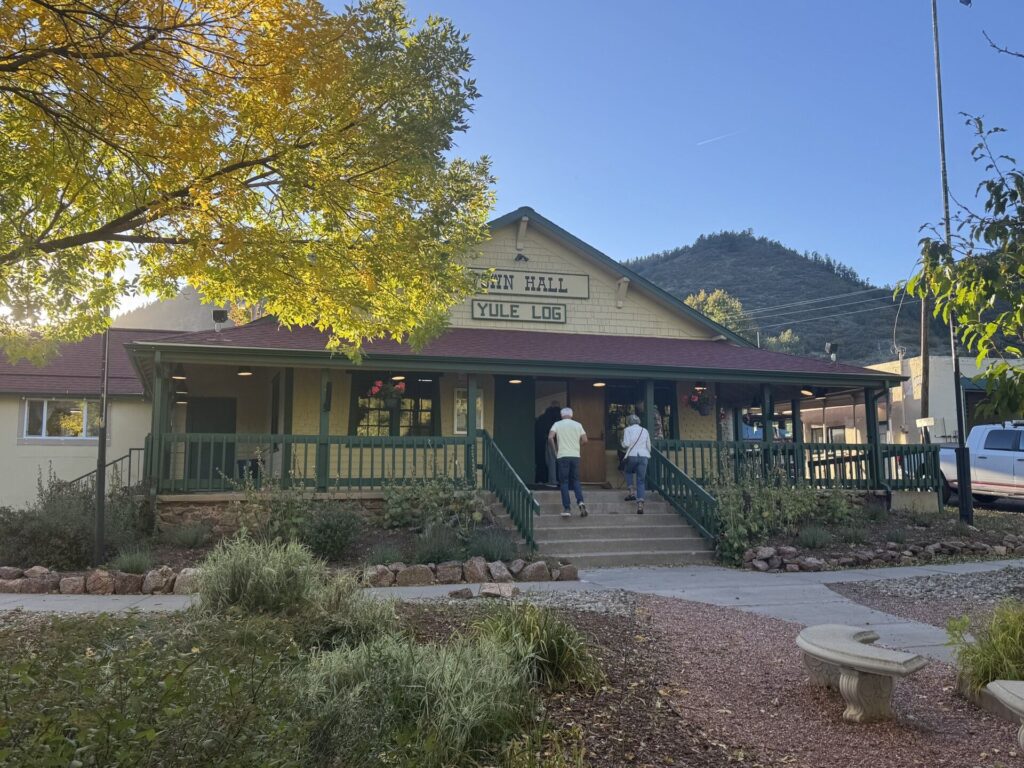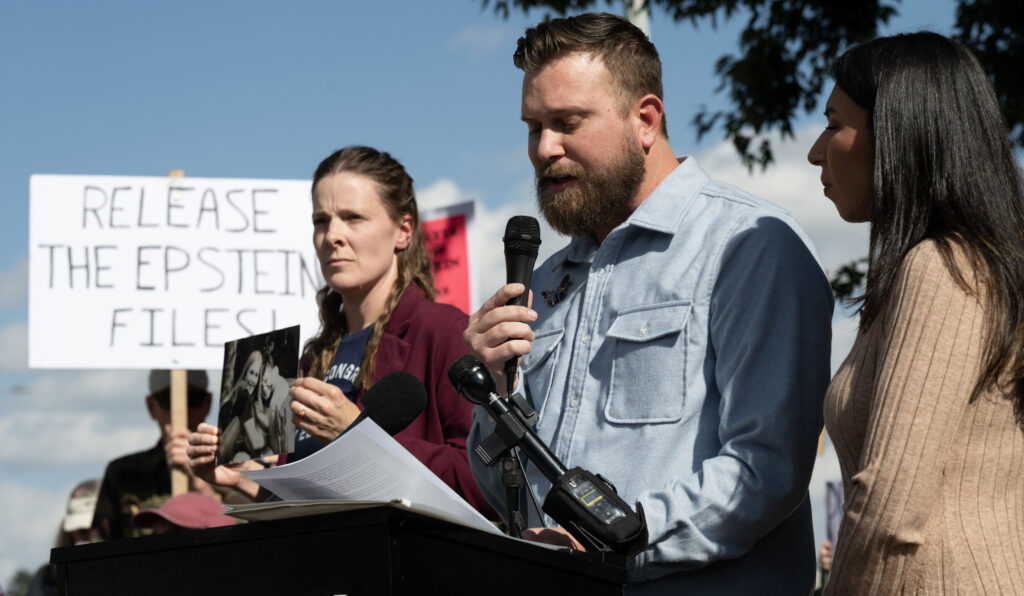Senate Republicans roll out package to save Coloradans $4,500 annually
State Senate Republicans released a package of bills on Tuesday that they say will save the average Colorado family about $4,500 annually.
The proposals mainly focus on housing, groceries, utilities, and energy costs.
Senate Minority Leader Paul Lundeen of Monument said Coloradans face an economic reality that is becoming increasingly challenging.
“This affordability crisis is no accident,” Lundeen said during a news conference on Tuesday, pointing to “misguided policies” adopted by Democrats at the state Capitol over the past five years.

The $4,500 tower, money that Senate Republicans said reflects the savings their bills would offer average Coloradans in 2025. Senate GOP Communications Director Josh Bly said every time a bill is killed, they will take out of the tower the money that bill would have saved Coloradans.
Lundeen is carrying an omnibus bill on housing affordability that he said would save Coloradans about $2,900 annually.
The first part is a repeat of a measure he pursued last year related to construction defects. Builders have argued that the current state law keeps them from developing affordable condos, a market that has dropped by 82% since 2008.
There have been previous attempts to modify the state’s 2001 Construction Defect Action Reform Act, which set up a process for how homeowners may sue builders when they find defects, which can range from serious issues, such as cracks in the foundation or HVAC problems, to smaller problems, such as defective cabinetry and leaks.
That portion of Lundeen’s bill would save about $330 per Coloradan per year, the Republicans said.
The measure also repeals House Bill 23-1120, which would save $2.85 per Coloradan. The 2023 law required mediation for low-income residents facing evictions, but Republicans said landlords are forced to increase rent as a consequence of doing business.
Another portion would repeal Senate Bill 24-094, saving $850 per Coloradan, the GOP said.
The 2024 law deals with “warrants of habitability,” a statute that requires rental properties to be fit for human habitation. The law changed the civil process for actions regarding breaches of habitability, modified remedies landlords must take, and the timeline for those changes.
The bill’s last portion requires cost-effective energy codes, with savings estimated at up to $3,780 per Coloradoan. This pertains to the 2021 International Energy Conservation Code, which Republicans said adds $328 per month to the average mortgage payment.
The second measures, which includes multiple provisions, is primarily about undoing fees. Sponsored by Sen. Mark Baisley of Woodland Park, it would repeal Senate Bill 21-260’s 29-cent retail delivery fee, House Bill 24-1449’s recycling fees, House Bill 21-1162’s 10-cent grocery bag fee, and the monthly energy assistance system benefit charged to customers by utilities.
It would also repeal the bill that mandated cage-free eggs in Colorado.
Colorado egg producers have said the high cost of eggs is tied to Avian bird flu, which has killed millions of chickens in Colorado. Colorado Egg Producers Executive Director Bill Scebbi told 9News last week that commercial egg producers have phased in the cage-free requirement and that it has had a minimal impact on the cost of eggs.
Baisley said his bill would not mandate that egg producers return to their previous production methods. Instead, he said, they would have a choice.
He added that his bill would also classify nuclear power as “clean energy,” which he said would cut the cost per kilowatt hour by half.
Colorado has no nuclear energy-generating plants. The the last one — the Fort St. Vrain plant — was decommissioned in 1992. However, the General Assembly passed legislation in 2023 to require the state’s energy office to study advanced energy solutions for southeastern and northwestern Colorado, including nuclear power.
The third bill deals with transportation, sponsored by Sen. Scott Bright of Greeley. It would roll back fees on gas and diesel fuel, passenger ride fees, and short-term vehicle rental fees, all from Senate Bill 21-260, and repeal a waste tire fee from Senate Bill 191-98.
He said his bill would save Coloradans about $400 per year
The fourth bill, sponsored by Sen. Janice Rich of Grand Junction, would repeal fees from Senate Bill 20-218, which deals with the “forever chemicals” perfluoroalkyl and polyfluoroalkyl substances, as well as monitoring and processing fees from House Bill 21-1189.
Rich said her bill also would prohibit state agencies from imposing “personal qualification requirements” in a profession or occupation unless required for public health, safety or welfare. These regulations translate into higher costs for consumers, she said.
Sen. Byron Pelton, R-Sterling, is also pursuing legislation to eliminate state income taxes on Social Security benefits, which he said would save money for those on fixed incomes.
In his State of the State address last week, Gov. Jared Polis hinted at support for Republicans on their regulatory reform agenda.
Lundeen said the governor understands regulatory reform, but the Republican said his caucus is asking him to “dig deeper” into those issues.
Lundeen said his caucus is working on the package with small businesses, chambers and families.
When asked if any Democrats had agreed to sign on to these bills, Lundeen indicated there isn’t support from that side of the aisle yet but added that the measures need to draw bipartisan backing with appeal in both chambers.











